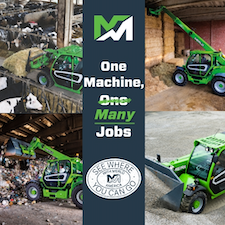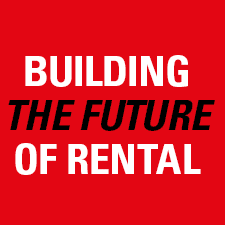Business Management: Succession planning
Practical considerations when planning to sell your business
By Malcolm Roach
Selling the business you have built up over many years on the foundation of sacrifice and sweat equity is not an easy thing to do, either emotionally or practically.
How do you value your business and how do you make sure you achieve the maximum return based on your desired goal for your former business?
Surprising as it may sound, not everyone is trying to get as many dollars as possible. We’ll discuss that issue and more from my perspective as a CPA, who is also likely to need an exit strategy in the next few years and has some experience in the world of acquisitions and mergers. This is intended to be a practical article, not necessarily one based on fancy formulas and theoretical concepts.
What happens after exiting?
That is the first thing you need to consider. Are you looking forward to exiting the business and dropping it into the hands of the new buyer without a second thought? Or would you like to take your money and be involved in running the business for a while longer? Do you have family you would like to involve? Do you care if the business is an independent ongoing concern or whether it gets merged into another and probably larger business, thereby losing the individual identify you have built? Are there existing managers or co-owners who might like to own and run the business? Do you care what happens to the staff? These questions have different answers based on the buyer interested in your firm.
Why and when to sell the business
There can be many reasons for this timeline. How is your health? Do you have dreams about taking more time for yourself or your family? Maybe you want to travel the world or spend more time on a fishing boat. Perhaps your family isn’t old enough to take over the business. There can be many reasons driving your schedule; you need to figure them out and be flexible.
Working through the sale process is can be a dragged-out affair and is often affected by the type of buyer with whom you’re dealing. Many purchasers will want you to stick around for a set time and your actual payout may be determined by the business profitability while you are still there.
Make sure you understand the motivations of buyers you encounter. Here are the major types:
Buyer type 1: “I just want a job and run a business.”
These buyers like the idea, for whatever reason, economic or personal, of owning a rental business. Their valuation will be based purely on the profitability of your business or perhaps the valuation of your assets. This is one of the best choices if you want your business to survive as a going concern, hopefully by maintaining the culture and existing staff. If the buyers are internal, you may find yourself financing a portion of the purchase payable over a number of years, which carries some risk.
The buyer will likely want you to hang around for a while. Make sure the buyer has the expertise to run your business or any future payouts will be in danger.
Buyer type 2: “We want to expand into your market.”
This buyer may or may not already have a presence in your market but they want to build a critical mass and they have identified your business as a step in accomplishing that goal.
Generally, only the top two or three competitors in any market flourish. Depending on the state of your business and how closely you are involved, the buyer may or may not want you involved for any more time than just a few months.
This is a situation where building a cult of personality that brings in business is good for your valuation but not so good for getting out of the business at the time of sale. The business valuation can vary widely, but is likely to be one of the better choices you will have.
Although there are costs to assimilating any new acquisition, the buyer generally is able to leverage common systems and processes, including sales and marketing, to expand the size of the acquired business and eliminate redundant costs such as administration, websites and more. The result is a potential increase in profitability beyond what you accomplished due to economies of scale. Here, negotiate on the basis that the business unit will be more profitable to the buyer than you, so therfore the valuation should be higher. There will likely be staff cuts and the culture will definitely change.
Payment may include some cash, a number of shares if the purchaser is of a public company, and the payout made over a limited number of years.
Buyer type 3: “We want your business as an investment.”
These buyers want you to hang around for a while and ideally have a management or executive team capable of successfully running the business in the future. Without a proper transition plan, this buyer will not be attracted to your business.
They are looking for a place to park their investment money and earn a return. The valuation is often as simple as taking an average adjusted annual profit over a period of years, often three, and dividing it by their desired rate of return. For example, a business with a profit base of $1,000,000 would attract a valuation of $4,000,000 if the purchaser was looking for a 25% return. This option is one of the best choices for maintaining the culture and staff. Again, payments vary but unlikely to be all or even a majority of cash.
Buyer type 4: “We want your equipment, customers or proprietary knowledge.”
It may be the value of your equipment or unique knowledge that makes your business more valuable than the profit you are showing on your financial statements.
The attraction of buying your equipment is a faster way to build up a rental fleet or acquire hard-to-get equipment, especially in unique sectors. You may have an excellent customer list but the economy or other factors are keeping your profits low. Proprietary knowledge creates a barrier to entry for competitors and this will be attractive to purchasers. Even if they could duplicate that knowledge, buying your business can accelerate that process for them and give them a several year advantage over other competitors.
Valuing equipment is rather straightforward, but customers are a sale of goodwill and can be tricky to value. Proprietary knowledge, if genuine and not just a knowledge of the local market, can result in a significant uptick in valuation.
The future culture and protection of your staff can vary widely. For an equipment sale, you should be able to exit immediately. If you are selling customers or proprietary knowledge, you can expect to stick around for a while, even a couple of years.
Recurring revenue important
Service businesses typically have lower valuations because the reliability of those revenue streams can be volatile. One way of mitigating that problem and driving your valuations higher is to look for opportunities to build recurring revenue streams.
For example, if you are providing service for customer equipment, sell them ongoing service contracts that will renew each year. Or, look for opportunities to sign agreements with convention facilities to provide equipment for a monthly or annual fee.
Be creative in looking for any opportunities that can drive recurring revenue over 30 percent of your total revenue.
Malcolm Roach is president and CEO of Open Door Technology, a Microsoft Dynamics NAV partner based in Calgary, Alberta with offices all over the world. He is a professional accountant with a passion for business analysis and integration.
This story was originally published in the March-April 2019 issue of Pro Contractor Rentals magazine. ©Urbain Communications LLC. All rights reserved.












